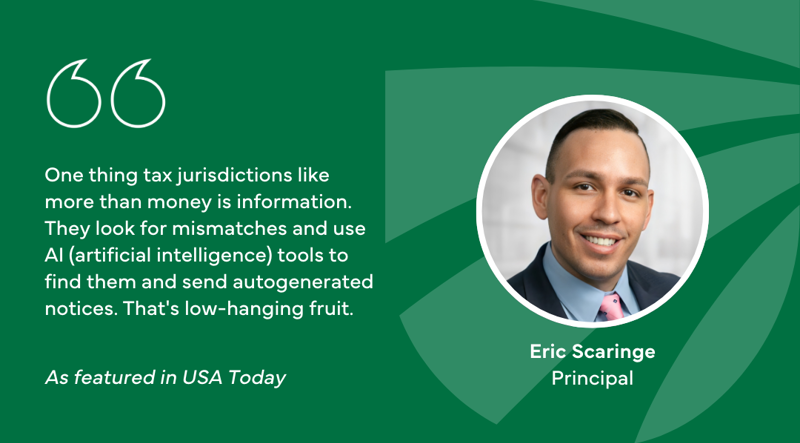It's the boogeyman of tax season: IRS audits. The IRS relies on a combination of algorithms, third-party information, whistleblowers and the information from your tax returns to determine if your return should be flagged, and a lot of concerns around these audits come from the unknown. Taxpayers who are selected for closer inspection will receive a notice in the mail and will resolve it either through the mail, or in person at an IRS office or their business.
According to Principal Eric Scaringe, the easiest way to avoid an audit is to be "accurate, honest, and modest." We live in an age of information, and the IRS uses the information collected from your return forms to create a picture of your income, expenses, and credits. You are most likely to be selected when those three things don't align properly.
"One thing tax jurisdictions like more than money is information," Scaringe said. "They look for mismatches, and use AI (artificial intelligence) tools to find it and send autogenerated notices. That's low hanging fruit."
Other potential triggers include separate returns claiming the same dependents, tax credits with qualification thresholds like the Earned Income Tax Credit (EITC), returns with sections that fall outside anticipated ranges, connections with another person who is being audited, and those on the highest and lowest income ends. Overall odds of an audit remain low--0.38% in 2022--and usually go back about three years.
Read the full article published by USA Today.
Have a Question?
Fill out the form to speak with one of our tax professionals.







